X
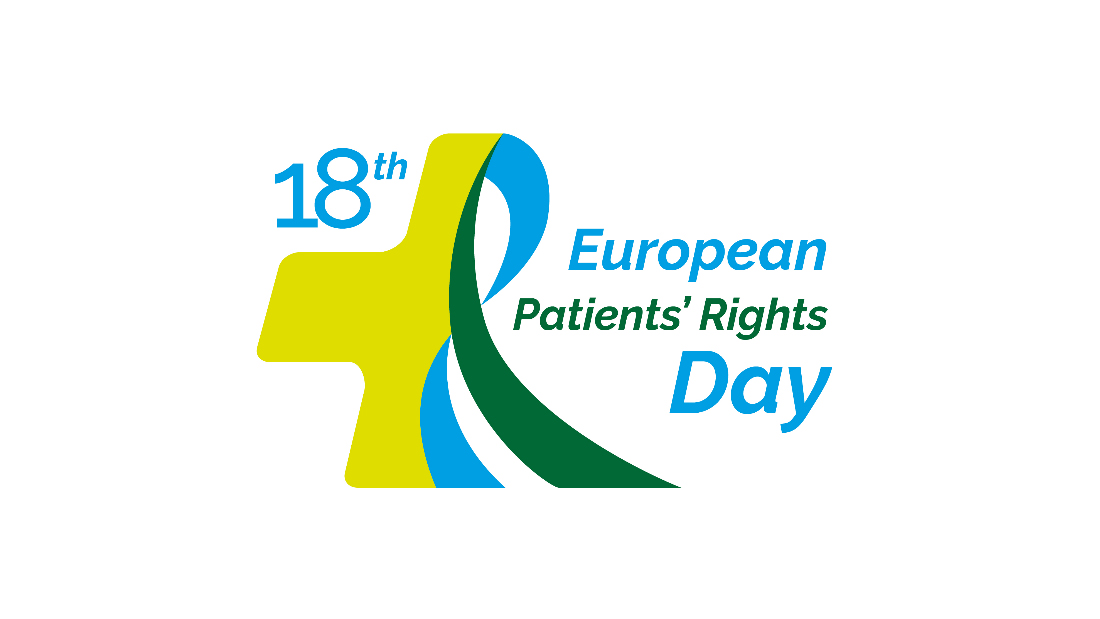
Combining the protection of patients' rights with skills shortage, medical desertification and job strain.
The key role of HCPs for a healthier Europe.
20 March 2024 | 16:30 – 18:30
Room ASP 3H1 | European Parliament, Brussels
Also this year, Active Citizenship Network will celebrate the European Patients' Rights Day - which has reached its 18th edition - with a conference that will be held at the European Parliament in Brussels on 20 March from 16:30 to 18:30, kindly hosted by MEP Brando Benifei (S&D) and organised with the support of the MEPs Interest Group "European Patients' Rights & Cross-Border Healthcare".
THE EVENT IS SOLD OUT
for more information please write to
To read the programme of the conference, click here
Introduction and aim of the initiative
15 million people work in health occupations, representing over 7% of the EU workforce and almost 4% of the EU population. The role of healthcare professionals (HCPs) is undeniably pivotal. However, their significance seems to be inadequately emphasized in the political sphere: whether in the NRRPs, the conclusions of the Conference for the Future of Europe, or pre-election debates.
As part of the European Year of Skills, the Commission's Employment and Social Developments in Europe (ESDE) report 2023 puts a special focus on the analysis of labour shortages and skills gaps also in the health sector.
Projects funded under the EU4Health Work Programme (among others, the “AHEAD” project and the Joint Action ”HEROES”) have addressed the persistent labour shortage in the health sector, while a widespread civic survey on health workers - conducted in Italy by Cittadinanzattiva - investigated how 10.000 workers belonging to 20 health professions experience their condition, outlining the contours of what is a real "health workforce emergency”.

Is your Government ready for another pandemic? The overall intention of the survey is to gather responses from general population and healthcare professionals (HCPs) in several countries, starting from U.S., on their perceptions of readiness for future public health threats related to infectious diseases (including future pandemics/endemics).
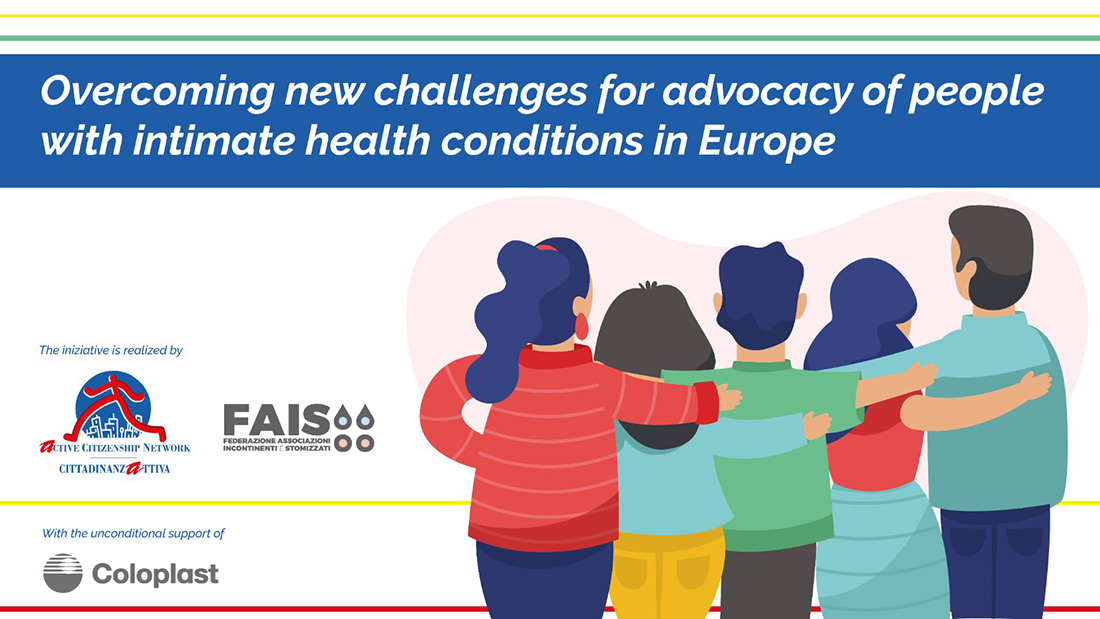
Intimate health conditions affect a large portion of the European population. Among them, more than 700.000 live with a stoma. Despite the large number, they feel that they are invisible to society, mainly due to the lack of:
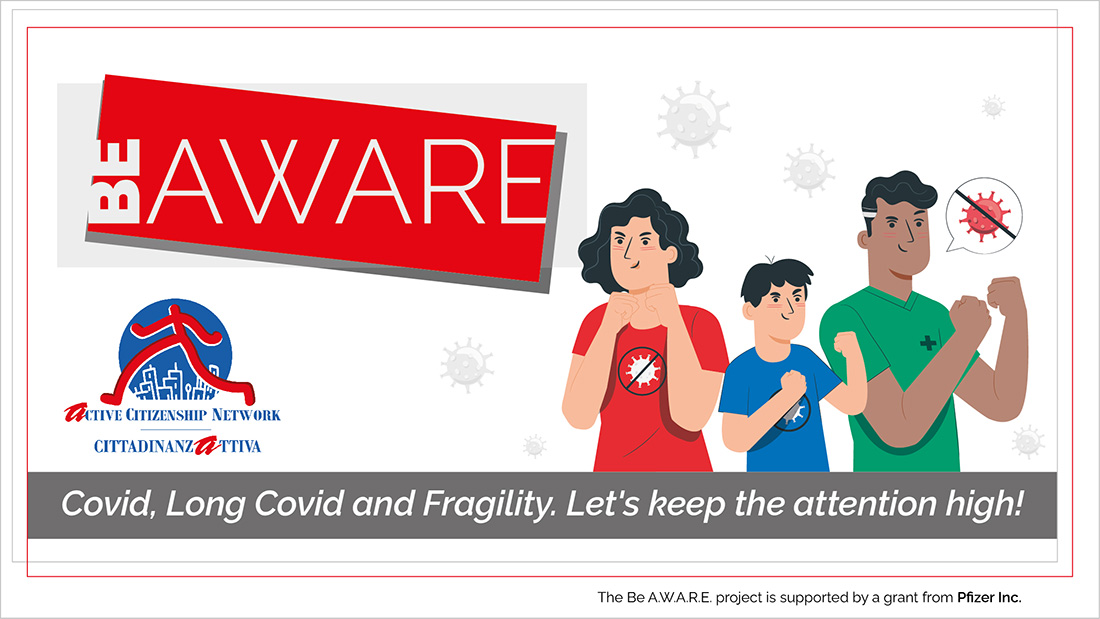
Consult the webinars’ cycle calendar (IT)
With the outbreak discovered in Codogno at the end of February 2020, Italy was the first European country to be hit by the Covid-19 pandemic, an emergency unparalleled in contemporary history, faced in the total absence of previous experience and consolidated procedures and n conditions of a severe shortage of health resources to be deployed.
Three years later, the current scenario has changed dramatically. The data on new cases and deaths from Covid-19, published by the Istituto Superiore Sanità, continue to fall, as in the rest of Europe, according to the Ecdc (European Centre for Disease Prevention and Control).
The low incidence of cases and the high level of immunisation (many people have undergone anti-Covid vaccines and have been infected with Sars-Cov-2) have now led to a phase of 'coexistence' with the virus, thanks also to a greater ability to manage the disease.
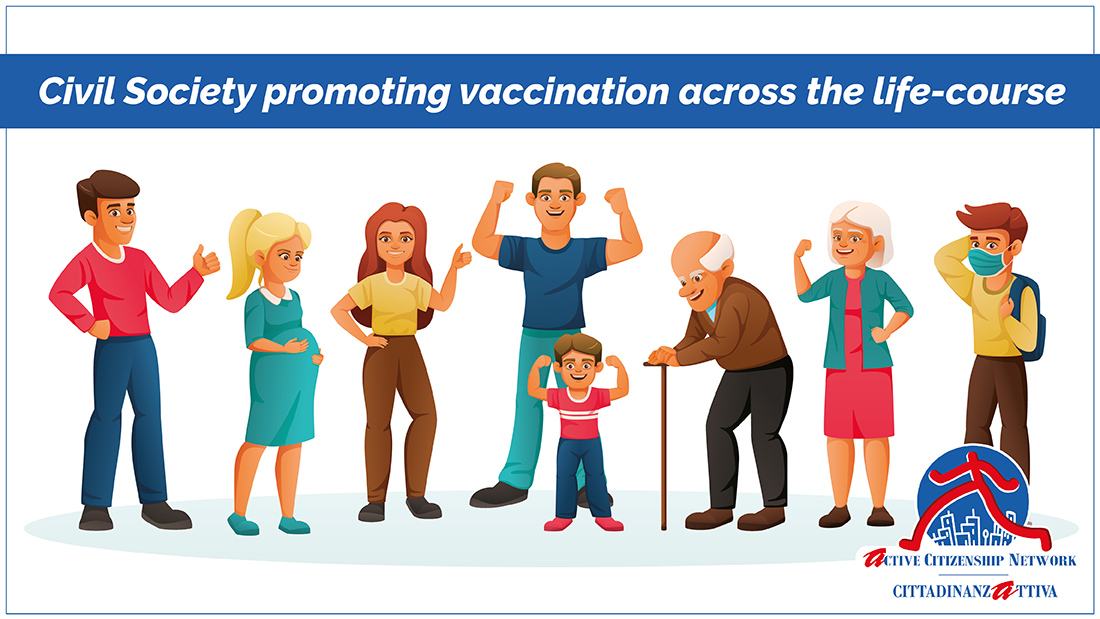
Summary
This project, to be realized most in online modality, is focused on continuing to support the need for strengthening adult vaccination in Europe. The idea is to enhance the importance of community empowerment/confidence around vaccine choice and collaboration with the different healthcare players, always engaging citizens’ and patients’ associations across Europe to better know and implement vaccination policies.

FRAMEWORK
Patients need to play a much bigger role in the fight against antimicrobial resistance (AMR), as they are directly involved in over-prescribing, overuse and self-medication, the scale and effect of which is still unknown. Despite there are many organizations interested in the issue of AMR, and the diversity of expertise and experience is vast, to date, there has been no consolidated effort globally to amalgamate these and provide a coherent guidance and support for patients’ engagement in tackling this global public health threat.
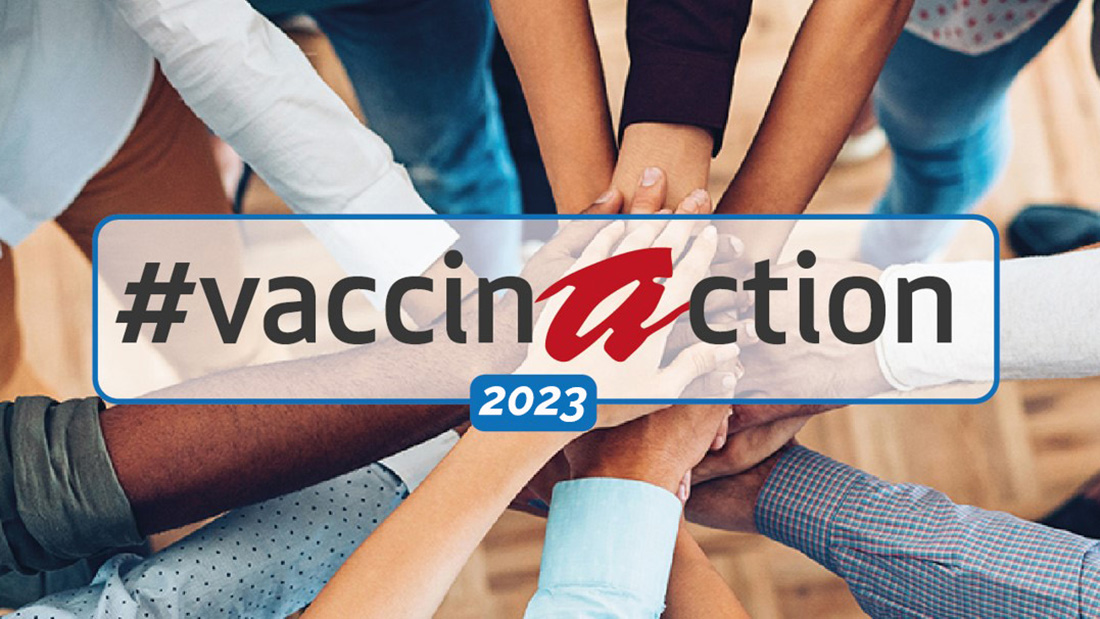
Protecting the value of vaccination during -and after-the COVID-19 pandemic across Europe: impact, experiences and perspectives from citizens’ and patients’ advocacy groups & relevant stakeholders
Summary
Active Citizenship Network (ACN), after the commitment on VaccinAction2021 and#VaccinAction2022, it's launching its #VaccinAction2023, focused on continuing to support the need for strengthening adults’ vaccination in Europe, protecting the value of routine immunization and its gains & activating stakeholders to engage with EU institutions and inform EU policy.
Our work on improvingvaccinationrates follow the Commission’s health priorities stated in the EU4Health 2021-2027 (as well as the fight against cancer and reducing the number of antimicrobial-resistant infections).
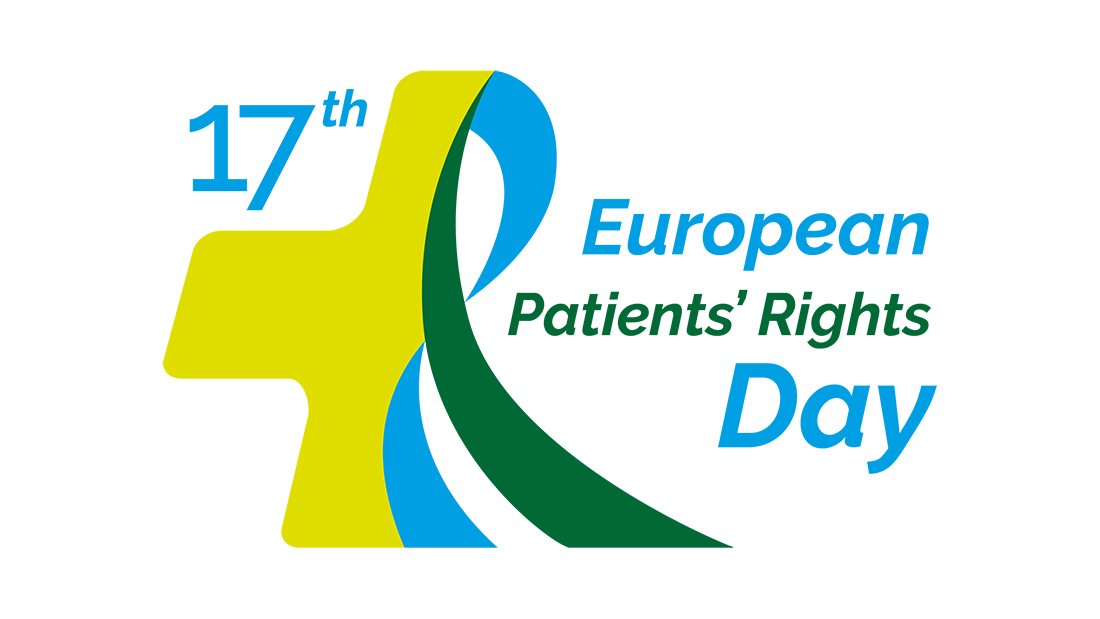
Introduction and aim of the initiative
During the second half of 2022, the European Parliament hosted a number of initiatives on the topic of advanced therapies, promoted by the actors who are probably most committed to the topic at European level. From the TRANSFORM MEP Interest Group event on 13 October 2022, during which the “Charter with Solutions to Enable Safe and Timely Patient Access to Advanced Therapies in Europe” was launched, to the event organised by the Alliance for Regenerative Medicine (ARM) entitled “The future of ATMPs” on 29 November 2022, and the initiative of the 'VITA - Value and Innovation for Advanced Therapies' Consortium, realised with the support of the MEPs Interest Group "European Patients' Rights and Cross-border Healthcare", held on 24 October and titled "Securing Equitable Patient Access to Advanced Therapies across Europe", an initiative in which Active Citizenship Network actively collaborated in particular by promoting the Call to Action "Advanced Therapies Medicinal Products revolution & the respect of the patients' right to access to care" signed, so far, by 43 Patients' Advocacy Groups (PAGs).
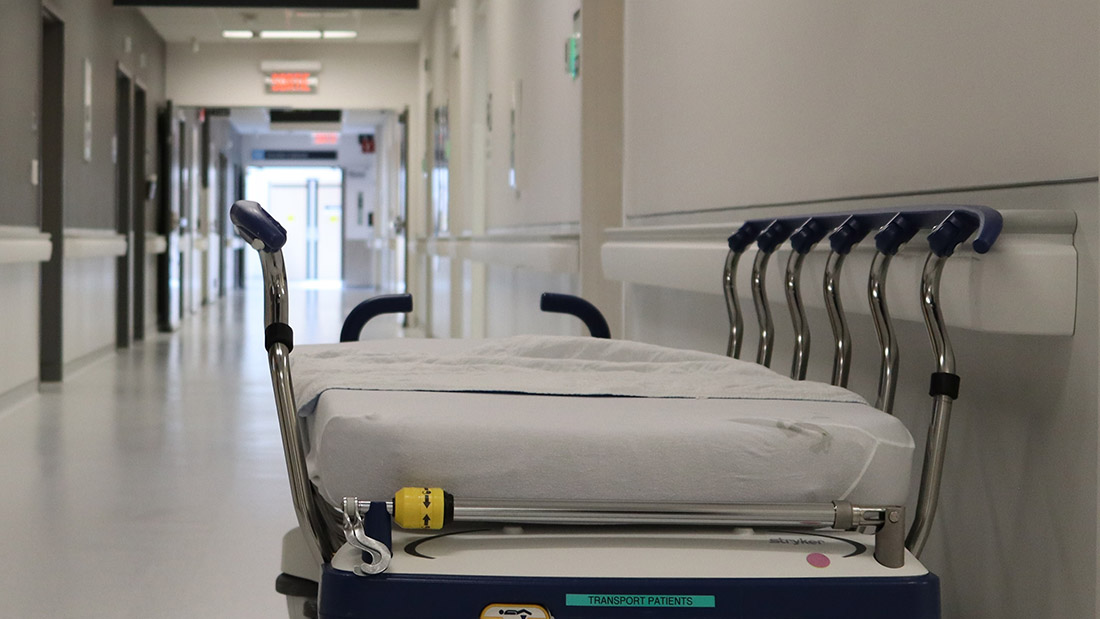
Background
Evidence collected during the crisis show that COVID-19 has had a significant impact – for instance - on non-communicable diseases (NCDs): indeed, oncological and chronic patients have been left almost alone for several months. From the point of view of an organization which promotes citizens’ activism for the protection of everyone’s rights, offering support to people in vulnerable conditions, it was not acceptable to respond to the immediate needs of citizens facing the Covid-19 pandemic simply by closing services. Instead, alternative organizational solutions are needed to guarantee continuity and quality of care, as well as a resilient health workforce.

Summary
In coherence with its long-term commitment on the topic, and in continuity with the activities carried out in 2021 in the framework of the I° edition of the European project called “Therapeutic adherence during the COVID-19 pandemic across Europe: impact, experiences and perspectives from PAGs & relevant stakeholders”, Cittadinanzattiva APS, through its EU branch Active Citizenship Network (ACN), is committed along 2022 to promote an EU policy dialogue on therapeutic adherence, with the aim to better contribute – starting from citizens’ and patients’ perspective - on understanding the impact of the COVID-19 pandemic on the therapeutic plans for chronic patients, with the ultimate goal of enhancing the actions and reactions implemented by PAGs and relevant stakeholders in front of the community of experts and Institutions.
The starting point well be the main data collected thanks the survey carried out by Active Citizenship Network with the direct involvement of 38 PAGs across Europe. About it, data and recommendations collected show the inadequate attention of institutions and the main stakeholders in relation to access and continuity of care for non-Covid-19 patients, as better explained in the introductory article “Encouraging across Europe the civic & patient advocacy groups’ engagement in the implementation of National Resilience and Recovery Plans to reduce the burden of Covid-19 pandemic on NCDs patients’ therapeutic adherence”, drafted by Active Citizenship Network and published by “International Journal of Epidemiology And Public Health Research” peer reviewed journal.
PAGs actions and re-actions during the pandemic on continuity of care & therapeutic adherence
Different EU umbrella organizations have already collected information on the impact of Covid-19 on therapeutic adherence for patients affected by the same diseases they advocate for. However, a confrontation between them to understand if there are common aspects suffered/observed by patients afflicted by different chronic pathologies is missing. Thus, the aim is to organize an EU webinar involving as speakers both EU Institutions, HCPs, but also selected leaders of the European associations who deal with specific chronic conditions.
Starting from the main outputs of the first edition of the project, the aim is to socialize the common elements or specificities that the pandemic's impact has had on the therapeutic adherence for these groups of patients in order to build a broad picture of this health emergency.
Therapeutic adherence & digital health solutions
A specific focus will be dedicated to the digital health solutions implemented in the last 2 years to improve the adherence to treatments. In fact, It is often stressed, even rightly so, how important it is that patients or those who take care of them are adequately informed about the importance of adherence to treatment and the risks of non-adherence. This role requires coordination between general practitioners, specialists, pharmacists, patient organizations, caregivers, and the entire health system. Many digital health solutions can be a decisive support in this respect, especially for chronic patients.
Because barriers to medication adherence are complex and varied, solutions to improve adherence must be multifactorial and multistakeholder. For this reason, we like to switch “from the therapeutic adherence to the therapeutic alliance”, in which the interaction with HCPs, as also the adherence to treatment, benefit from the new digital health tools.
Read more:
The project is realized thanks to the unconditional support of
![]()
Last update: December 2022